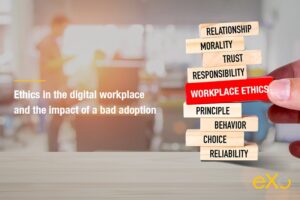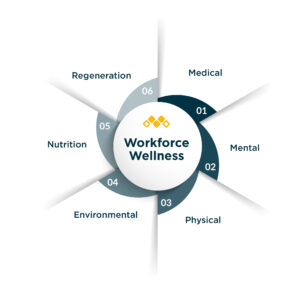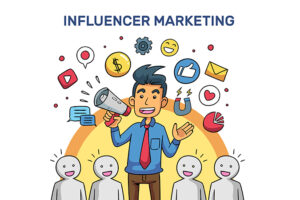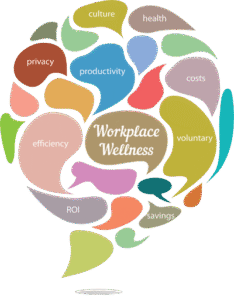AI Revolutionizes Talent Acquisition: Unpacking the Future of Recruitment Technology
6 min read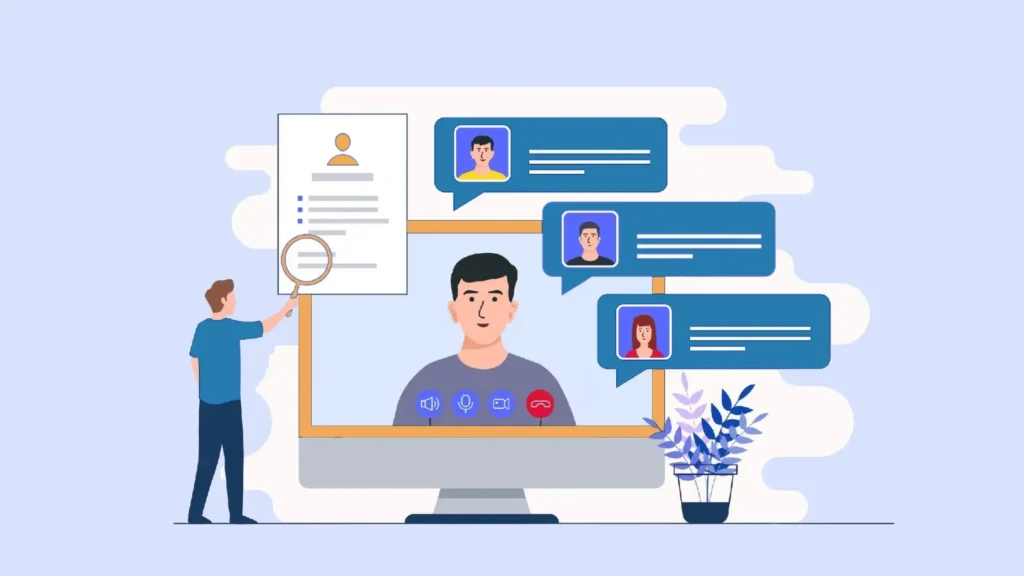
The global talent acquisition landscape is experiencing an unprecedented transformation, with Artificial Intelligence (AI) emerging as a pivotal force. Far beyond mere automation, AI in recruitment technology is reshaping how companies identify, attract, and evaluate candidates, promising enhanced efficiency and predictive insights. However, this technological leap also brings to the forefront critical discussions around ethical implications, data privacy, and the imperative for a fair and equitable hiring process, impacting job seekers worldwide, including international students navigating new career markets.
The Rise of AI in Recruitment: A Paradigm Shift
In an increasingly competitive global job market, companies are under constant pressure to optimize their hiring pipelines, reduce time-to-hire, and identify the best-fit candidates from a vast pool of applicants. This urgent need has accelerated the adoption of AI in recruitment technology, moving it from a nascent concept to a mainstream reality. The current wave of AI advancements, particularly in machine learning, natural language processing (NLP), and computer vision, enables sophisticated tools that can process colossal amounts of data, automate repetitive tasks, and even gauge candidate potential with greater accuracy than traditional methods.
From initial candidate sourcing and screening to advanced assessment and onboarding, AI is now integrated into virtually every stage of the recruitment lifecycle. This integration is not merely about speeding up processes; it’s about introducing a data-driven approach that aims to remove human inconsistencies and biases, leading to more objective and efficient hiring decisions. However, the efficacy and fairness of these systems are entirely dependent on the data they are trained on, necessitating careful consideration of their design and deployment.
Enhancing Efficiency and Overcoming Challenges with AI in Recruitment Technology
The primary allure of AI in recruitment technology lies in its capacity to streamline and enhance various aspects of hiring. For instance, AI-powered applicant tracking systems (ATS) can now do more than just filter keywords; they can analyze resume content, identify skill adjacencies, and predict job fit based on vast datasets of successful employees. Chatbots equipped with NLP engage candidates in preliminary screenings, answering FAQs, and even conducting initial interviews, providing a consistent and immediate experience for applicants while freeing up recruiters’ time.
Furthermore, AI-driven video interviewing platforms can analyze verbal and non-verbal cues, sentiment, and even speech patterns to offer insights into a candidate’s communication skills and personality traits. Predictive analytics, another significant application of AI in recruitment technology, allows organizations to forecast future hiring needs, identify flight risks among new hires, and optimize talent pipelines for long-term strategic growth. These tools collectively promise a future where recruitment is faster, more accurate, and less resource-intensive.
Yet, the rapid adoption of AI has not been without its challenges, particularly concerning ethics. Algorithmic bias, where AI systems inadvertently learn and perpetuate human biases present in historical data, is a pressing concern. This can lead to qualified candidates from underrepresented groups being unfairly overlooked. Data privacy and security are also paramount, as AI systems often handle sensitive personal information, raising questions about data storage, access, and usage in compliance with global regulations like GDPR and CCPA. The demand for transparency in AI decisions and maintaining a crucial ‘human touch’ throughout the candidate journey are key ethical dilemmas that the industry is actively working to address, with a focus on auditability and human oversight becoming increasingly important.
Navigating the AI-Driven Job Market: Insights for Global Talent and International Students
For job seekers, particularly international students aiming to enter new professional environments, the rise of AI in recruitment technology presents both opportunities and a new set of rules for engagement. The traditional job application process, which often relied heavily on human review at every stage, is swiftly being replaced by systems that automate initial screenings and assessments. This means that a candidate’s first interaction is increasingly likely to be with an AI, not a human.
International students, who often face unique challenges such as cultural differences in communication, language nuances, and varying resume formats, need to be acutely aware of how AI systems interpret information. While AI can potentially reduce human bias, it can also introduce new forms if not carefully designed. For instance, AI trained on data predominantly from one cultural context might struggle to accurately assess candidates from another, potentially misinterpreting communication styles or professional experiences. The emphasis shifts from merely having the right qualifications to also understanding how to present those qualifications in a way that AI systems can comprehend and value.
The digital footprint also gains immense importance. AI tools are increasingly capable of analyzing online professional profiles, social media activity, and even public contributions to assess a candidate’s skills, interests, and cultural fit. For international students, this means ensuring their online presence is professional, consistent, and reflective of their aspirations in their target market. Developing a strong, globally relevant personal brand becomes crucial.
Strategies for Success: Adapting to AI-Powered Hiring
To thrive in this evolving recruitment landscape driven by AI in recruitment technology, job seekers must adapt their strategies. Here are some expert insights and practical tips:
- Optimize Your Resume for AI: Go beyond keywords. While keywords are important for initial parsing, AI increasingly looks for context, quantifiable achievements, and action verbs. Use clear, concise language. Consider industry-standard formats that AI systems are trained to read.
- Master AI-Powered Interviews: If applying for roles that use video interviews with AI analysis, practice articulating your thoughts clearly and confidently. Be mindful of your body language and facial expressions. Some platforms offer practice modes, utilize them.
- Embrace Soft Skills: As AI handles technical screenings, human recruiters will focus more on uniquely human traits like critical thinking, creativity, emotional intelligence, and adaptability. Develop and highlight these skills in your applications and interviews.
- Build a Strong Digital Professional Presence: Curate your LinkedIn profile, professional portfolio, and any other relevant online platforms. Ensure consistency across platforms and that your online persona aligns with your professional aspirations.
- For International Students – Cultural Nuance and Adaptability:
- Language Proficiency: While AI can detect language proficiency, focus on showcasing not just correctness but also nuance and cultural appropriateness in communication.
- Showcase Adaptability: Highlight experiences that demonstrate your ability to adapt to new environments, solve problems creatively, and work effectively in diverse teams. This is a significant asset for international talent.
- Network Strategically: AI enhances sourcing, but human networks remain invaluable. Connect with professionals in your target industry and country. Informational interviews can provide insights into local hiring practices and AI tools.
- Understand Local AI Trends: Research the prevalent AI recruitment tools and practices in the countries or companies you are applying to. This awareness can give you a strategic edge.
- Continuous Learning and Upskilling: The skills in demand are constantly evolving. Stay updated with industry trends and continuously invest in learning new technical and soft skills.
The Future of Workforce Transformation: AI and the Human Element
Looking ahead, the evolution of AI in recruitment technology is poised to continue at a rapid pace. We can anticipate more sophisticated AI models that are not only more efficient but also more ethically robust, incorporating features for bias detection and mitigation. Regulatory frameworks, such as the EU AI Act, will play a crucial role in shaping how these technologies are developed and deployed, ensuring greater transparency, accountability, and fairness.
The future of recruitment is likely to be a synergistic blend of AI and human expertise. While AI will continue to excel at data processing, pattern recognition, and initial screenings, human recruiters will focus on strategic tasks that require empathy, complex problem-solving, negotiation, and nuanced cultural understanding. This shift will elevate the role of the recruiter to that of a talent strategist and relationship builder, focusing on the human aspects of employment that AI cannot replicate.
For international students and global talent, this ongoing transformation signifies an era where digital literacy, cultural intelligence, and adaptability are as critical as academic qualifications. Companies that embrace ethical AI in recruitment technology will not only gain a competitive edge but also foster more diverse and inclusive workplaces, paving the way for a truly global workforce.
Reach out to us for personalized consultation based on your specific requirements.
